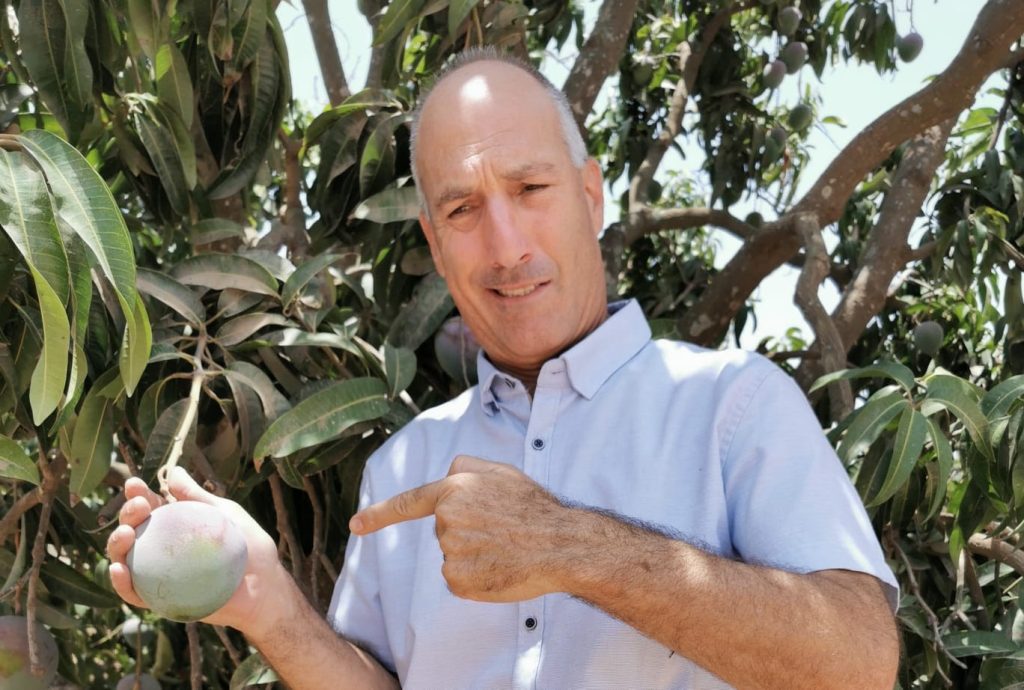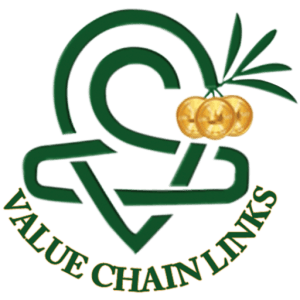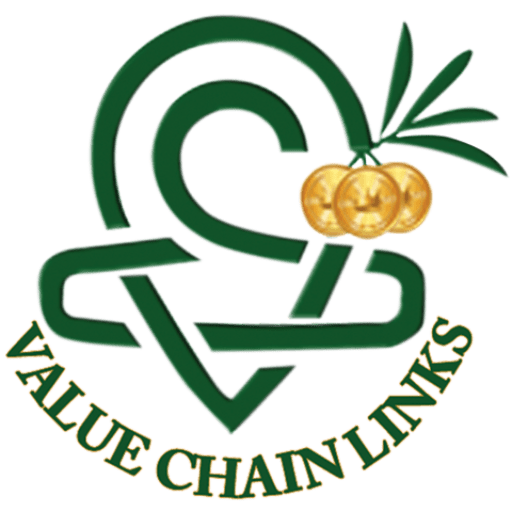HOW CAN WE SOLVE A PROBLEM IF WE DISAGREE ON THE PROBLEM’S NATURE?

How is it possible that humankind managed to put a man on the moon 51 years ago (20 July 1969) and yet cannot solve the ongoing poverty problem of hundreds of millions of farmers who need to support their families with less than 1.9 $/day?
Is “technology” to blame for poverty in particular parts of the world, or could it result from other reasons?
In many emerging economies, over 50% of the population is involved in agriculture, with the majority live in extreme poverty, i.e., income lower than 1.9 $/day.
Everybody involved in the agro-sector expressed out loud and cleared their genuine desire to change that horrible state. Meanwhile, billions $ are transferred annually from the developed countries to support the cause of “change,” but somehow, a significant change is not in sight.
I shared how I was asked to chair a conference related to the agro-sector in the previous column. I conveyed my fear to the organizers that the conference will be “just another conference” with nice words but a minor impact, if any, on the agro-sector.
Hopping to invest my time in fruitful and impactful activities, I reached for your help and asked you two questions regarding the conference;
“(1) What do you think should be the focal point of a conference interested in advancing the issue of the agro-sector in Africa and emerging economies, and
(2) what should be the indicators for the success of such a conference?”
Following this column, I received many emails where you shared your thoughts and suggestions. I was reading all your proposals, advice, and ideas with great pleasure and interest.
I sincerely thank each of you who took the time and effort to reply, especially as I know how difficult and complex the answers to my questions are. You have my utmost respect!

THE TAKE
The common denominator that came out from your answers (see some of the responses below) presents a massive confusion about those issues, including the lack of organization, leadership, direction, vision, and trust, regardless of the approach.
Your responses even reflected a sense of hopeless feeling, as if we accept that the agro-sector root problem in Africa and emerging economies will never be solved and is doomed to remain as is. Hence, the practical approach should be how we “manage” poverty rather than solving it.
From your feedbacks to my first request (“What do you think should be the focal point…”), I could conclude that –
(1)Technology is one of many issues to deal with.
(2) There is no agreement on a single, most important issue or activity we should take to face and change the current state of the agro-sector in Africa and emerging economies.
Below I share part of the answers you sent to get the “general spirit.”
Unfortunately, none of you addressed my second request/question (“… indicators for the success of such a conference”).
If I asked you to measure the success of your business operation or a conference for business people, you wouldn’t hesitate to suggest clear indicators for success.
Could it be that the lack of suggested indicators for measuring the success of a conference dealing with improving African farmers’ livelihood reflects a more significant problem?
Do we have and want simple, clear indicators to measure the success of activities and projects in the agro-sector of emerging economies, or are we satisfied with “managing the problem of poverty”?
A CHANGE IS ON THE WAY
The same human spirit that did not cease efforts until it landed on the moon is the spirit now blowing in the body, thoughts, and aspirations of those who want to make a similar historical landmark, following Neil Armstrong, “a small step for man and a big step for humanity.” Only this time the “small step” should be in the agro-sector in the emerging economies by bringing a solution to the tremendous human suffering of hundreds of millions subsisting from agriculture.
Landing on the moon, the extinction of smallpox, the industrial revolution, the Panama Canal, the computer, the Internet, the smartphone, the COVID 19 vaccination, etc., are all enormous technological achievements for all of humanity.
However, it is imperative to remember that these achievements came after a lengthy scientific effort, supported by a robust organizational and managerial infrastructure, based on top global experts in the field.
Furthermore, it came with a suitable supportive business model… and huge investments.
Not a minute earlier!
P.S. keep in mind the many costly failures that came with any of the above achievements. Yet, none of it stopped the leading team from proceeding until achieving their and our goal.
Do we currently have such organizational and managerial infrastructure, with a suitable business model to enable and energize the initiation and transformation from Agriculture (i.e., poverty) to Agro-industry (i.e., prosperity) in the emerging economies?
I am afraid that today we lack the necessary infrastructure, determination, and will to deal with this magnitude of a global challenge.
Suppose we relate to the ago-sector problem in emerging economies, like the Americans related to the “Manhattan Project” (the atomic bomb development). In that case, we will come up with a solution faster than we can imagine.
Can you see the Americans completing the development of the Manhattan Project, the Internet, the Panama Canal, or Landing on the moon without one of the following ingredients?
(1) Human capital (experts).
(2) Organizational infrastructure.
(3) Management.
(4) Business model.
(5) Financial means.
Assuming your answer to the above question is NO. Why do you expect a global effort of a greater magnitude, i.e., transferring from agriculture (poverty) to agro-industry (prosperity), to succeed?
As for now, we do not see a global-strategic organization to deal with the plight of hundreds of millions of farmers. However, we do identify sporadic efforts, mostly lead by passionate, interested individuals, capable of introducing and implementing small-scale “models” for change.
In the visible future, one of those models may well serve as a basis to transfer the farmers of emerging economies from agriculture to agro-industry and from poverty to prosperity.
This is perhaps the most important message to hundreds of millions of farmers in the emerging economies; in the agro-sector, the “small step for man…” will not be a novel technology, but the development of “working models for change from agriculture to agro-industry.”
Such models, preferably already field-tested, will need to include a clear organizational, managerial, and business model structure. They will need to be financially supported in their early stages of development and application.
You may ask, “But where is the technology?“
Technology is an “enabler”; a “tool” to help us execute our dreams and vision in a faster, easier, cost-effective, and more efficient manner.
Technology, being a “tool,” is useless and even a heavy burden if we don’t know how to exploit it to improve our income and livelihood.
Most farmers in emerging economies wouldn’t know how to fully exploit the benefit of dripping irrigation even if they get it for free. Meanwhile, the maintenance of such a system is so expensive that it may make them poorer.
While there is a vast place for various “technologies” and endless business opportunities in the future of farmers and farming in emerging economies, technologies by themselves will not bring the change because they never did!
Rephrasing, we can say that, “When the farmer is ready, technology appears.” Never the other way.
Technology is not the key success factor (KSF) that will initiate, create, and drive the beginning of the change from agriculture to agro-industry, from poverty to prosperity.
Technologies will be developed and eagerly adopted once the agro-sector is more mature and ready to absorb them.
For this, we first need to create the proper “environment” with suitable people, having the know-how, management, organization, and equipped with the right business model.
I look at where I was born and raised, a small Israeli community based on farming. Half a century ago, my parents had no drones, no dripping irrigation, no fertilization, no robots, no internet, no computers, no Apps, no genetically modified plans/insects. Yet, they managed to develop a prosperous, healthy community entirely based on agro-industry.
Based on a suitable business model, their successful professional basic activities resulted in a need for improved technology, which enabled other Israeli organizations to develop and market much more advanced technologies, such as dripping irrigation.
As a farmer, as an expert in the agro-sector, as a scientist, as a businessperson, as the CEO of a global leading technology company, and most importantly, as a person who wishes to improve the lives of farmers; I do not perceive the unrestrained run to “push” farmers with technologies, which are uneconomical and unsustainable for them.
On the face of it, it is clear the abundance of technologies poured on African farmers and emerging economies have not helped them as expected.
Therefore, it seems that the most cost-effective long-term strategic investment emerging economies can do is related to infrastructure combining various characteristics of the human capital, organizational infrastructure, and management, supported by a proper business model and financial means.
My mission was always to help farmers, no matter where they are, to improve livelihood while considering health and environmental issues.
However, it was only after I had the best possible technological solution that I fully captured the reality that I wouldn’t achieve my vision without a proper business model, build and design for that purpose.
Looking for “a proper business model,” I discovered the lack of such a model and the need to develop one.
This is the short version of how I got to deal with business models and why I am now convinced that the most urgent demand for advancing emerging economies is developing and applying such a model.
Green Valley field-tested business model is the result of that understanding.
As we continue working and thinking about the goal and content of the conference, I invite you to send your advice with me, as well as your thoughts for tangible success indicators. Help me make that conference unique and not “just another one.”
YOUR RESPONSES
In this part, I share some of the written communication I received from you following my previous column. Thanks sharing your thoughts and ideas, I highly appreciate it. I find the interaction with you critical for future development and success, so please, keep writing.
==============
“Dr. Nimrod Israely, I think the choice of the topic has to consider Northern Africa, Sub Saharan Africa, and Southern Africa as different segments because the technical and institutional aspects of agriculture is different in these three parts of Africa. That said, from my experience working with farmers, I find a number of crucial issues that require immediate Technical, Institutional and Economic interventions, however, I will say that African Agriculture stills lacks a lot of Technical and Institutional support. I would build a discussion around Enhancement of Technical capacities of those engaged in agriculture-considering aspects of production and postharvest handling – Agriculture has changed and is still changing whereas many African farmers are still reliant on the traditional production techniques; this is the case with majority of the farmers in Sub Saharan Africa. I would link the discussion to the need for Public and Private Institutional support for the technically capacitated farmers. This is critical in building the farmers resilience.” (Ronald Natyetye, LinketIn).
==============
“Dear Dr Nimrod,
Let me say this, look at how Israelis began thinking of innovations.
The harsh desert conditions made them think hard about the future of its citizens.
The problem is a majority of Africans want quick results and many don’t want to think hard.
We aren’t trained to be entrepreneurs, we are rather trained to look for employment.
However, some Africans are creative and hardworking but don’t want to share knowledge like it is in the developed world.
Governments in Africa don’t support entrepreneurs of Africa origin and don’t believe in them.”
Martiy
==============
“Nimrod – your insights, comments, writing are truly brilliant, as well as the necessary first step in implementing change. The critically important question is how to get from here to there – and that is what takes decades / centuries of people like you and me being unrelenting in implementing change 24/7.
We are trying to change human behavior, which took centuries to get to where it is now.” Michael L Smolens
==============
“Dear Dr. Nimrod, I enjoy your articles and the way you have been able to develop a practical way to solve some of the existing challenges in the agriculture industry in Africa.
I am based in Kenya, and the export of flowers, vegetables and fruits is rising and could potentially double what is currently being achieved. Reflecting from the Kenyan experience some notes below for the conference.
1. Standards and compliance through a nationally recognized enforcement agency. We have Horticultural crops directorate who guide, certify and enforce the export standards. Before exit, a certificate indicating conformity with EURO GAP is mandatory.
2. Training and continuous monitoring – The export standards are always being communicated with registration of all interested parties signing agreements to set rules and regulations, which are mandatory for annual licensing – Failure leads to cancelation.
3. Government support – the annual budget sets some support for the upgrading of infrastructure such as grading sheds, with refrigeration services, extension services (both public and private) and the regulation of the pesticide market (PCPB – Pest Control Products Board) which ensures proper labeling of the pesticides with Pre-harvest intervals clearly indicated.
4. Management of the mindset of the people including the youth. Agriculture is seen as the last option and thus not so much effort in learning the right skills. Most farmers in some places are aged between 55- 65 years. There is an urgent need to make “Agribusiness” attractive to the youth in making them learn the right skills to increase productivity and profitability.
5. Government incentives – Infrastructure is necessary for the reward of agribusiness in areas of provision of irrigation water (irrigation schemes), proper road development to facilitate movement of produce and other infrastructure such as electricity (duties on solar power) to enable the cold store facilities.
6. ATTITUDE – Some countries look at minerals and oil as the fastest growth area and fail to build the capacity of the agricultural sector in terms of budgetary support for the extension staff. All ministries including the ministry of defense should engage to change the attitude from “agribusiness” being for failures in school to showcasing the need for food security and food sovereignty. “
James Mwangi Ndiritu
==============
“Good morning, I am enjoying your communication. It is very applicable to the African agribusiness industry. I am based in Zambia practicing farming as a business dealing in the production of fresh fruits and fruit tree seedlings with a bias towards the Hass avocados and fiber less Mangoes(Kent variety). Fruit flies is a major challenge mango farmers are facing in our country and also the quality as the common mango variety is the Gary. We are still in our infant stage as our improved Kent mangoes are only two years old. This is the first year they are producing flowers. We hope to learn more from you.
In my view, the need for partnerships is key. Established companies like yours would do good to partner with emerging farmers like us to boost our out grower schemes. Where you identify a demo farmers and attach a group of farmers to a demo farmer who will work closely with the identified group on production of quality products on a large scale. We as Mooto farms limited have recruited cooperative members to work with us but need support to sustain our vision.
Thank you once more. Regards, Maimbolwa Mooto.”
==============
“Thanks Dr. I do agree with some respondents here, Technological advancement is not the key aspect in triggering agro based industry in Africa but its just part of the aspects. I always blame Africans for rushing to adopt new innovations from advanced countries. This has destroyed our creativity in dealing with problems affecting us. We don’t trust our own pathways to agriculture advancement.
The topic: Supporting Local Initiatives to enhance agro based industry friendly to the Environment “. I think Africans have an idea which has been interrupted by the western innovations. It’s high time they should be supported to advance their ideas. For example, we have local ways of pest and disease control using local plant products but have been abandoned in favor of synthetic pesticides.
In my village for example, we people make local brew out of millet. But this ends up only in the local market, people need support in value addition. The product is however on high demand but can’t meet the international standards. Thanks for your effort in trying to enlighten Africa.” Richard Opejo
==============
“Hello Dr Nimrod, For this conference, I think you should go even if you are not sure of the positive impact it will have on the hundreds of participants. You are a change agent and change means patience.
At the end of the conference you will get feedback from those participants and at that point you will know that you have made the right choice.
We should never give up even if things don’t work out as we planned. The most important thing is to get started!
I think we need to think about how to get African farmers to become more professional. The beginning of the professionalization of agriculture will have a positive impact in the long term. Kind regards, Dr. PDF”
==============
Please, if you found value in this article, it would mean a lot to me if you send me a comment and share it with your friends.
Subscribe here for access to exclusive content – SUBSCRIBE.

